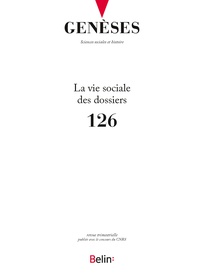By Mathias Delori

In 1945, the US government commissioned a survey to assess the effects of the massive aerial bombing of German and Japanese cities. This survey involved two teams of social scientists who reached opposite conclusions regarding the effects of the bombing on civilian “morale”. One, led by the Keynesian economist Galbraith, concluded that the bombings had the opposite effect of what was intended: they remobilized the civilian population against the aggressors. The other, led by the positivist psychosociologist Likert, found that the bombing did demoralize civilians and, therefore, contributed to the victory. This second conclusion was used to justify the creation of the US Air Force in 1947 and subsequently the strategic bombings in Korea. The conclusions of both teams stem, in part, from their respective relationships with the military-industrial complex, but also from the replies to the following questions: How can civilian “morale” be studied scientifically? Can it be quantified?
Published:
Genèses. Sciences sociales et histoire 126 (1), 2022
DOI:
doi.org/10.3917/gen.126.0080
Online available:
www.cairn-int.info
PDF:
Quantifier le moral des Allemands et des Japonais
(862.96 KB)